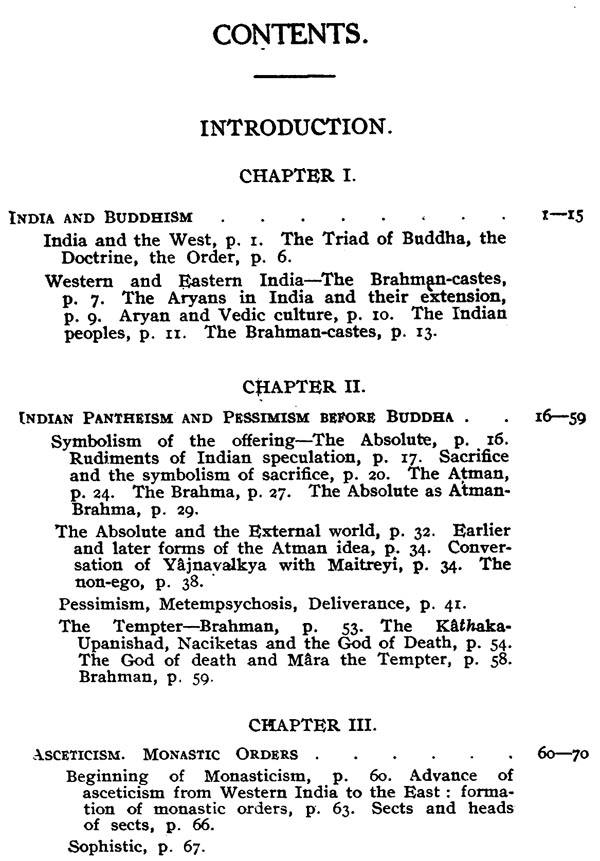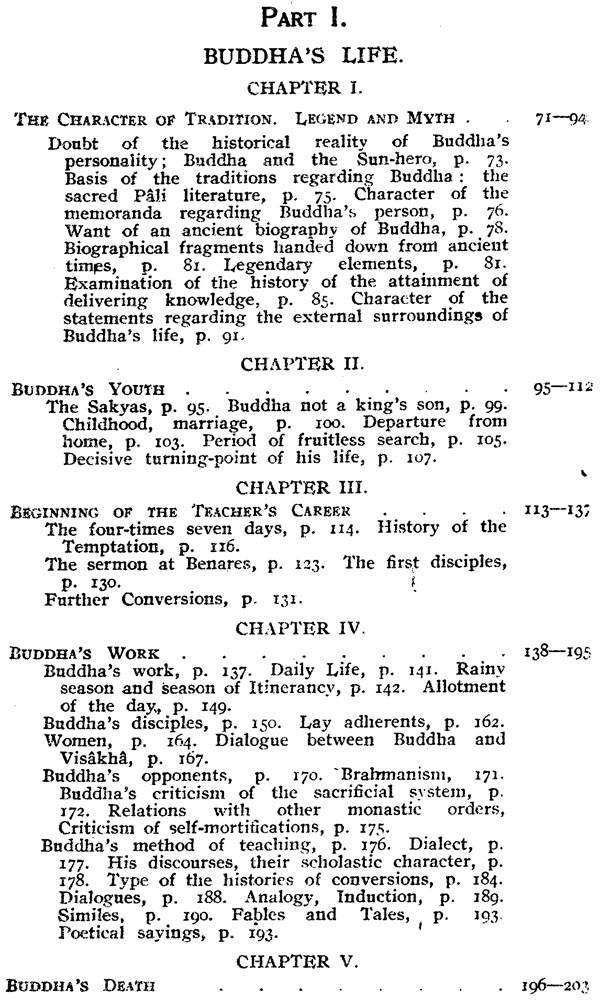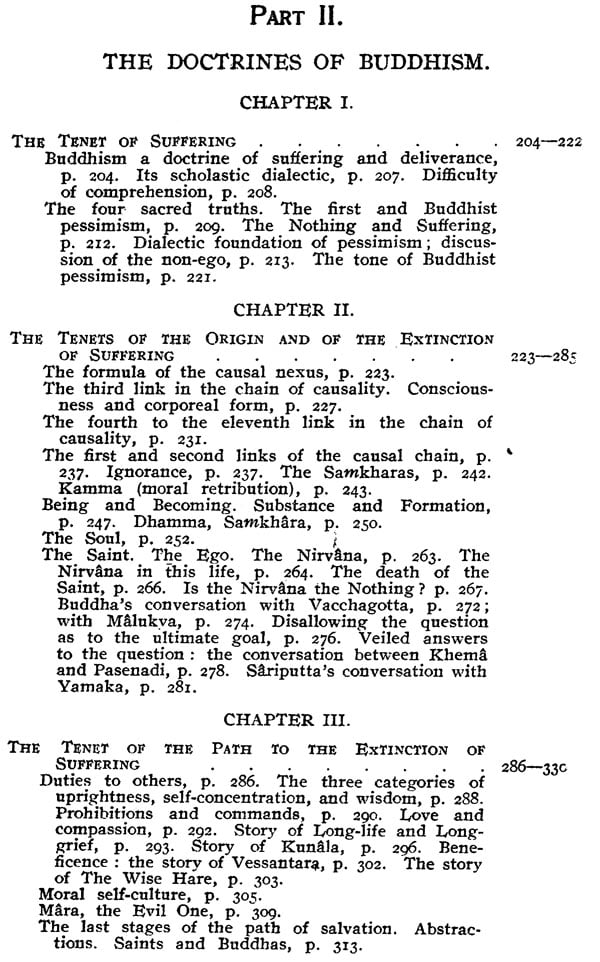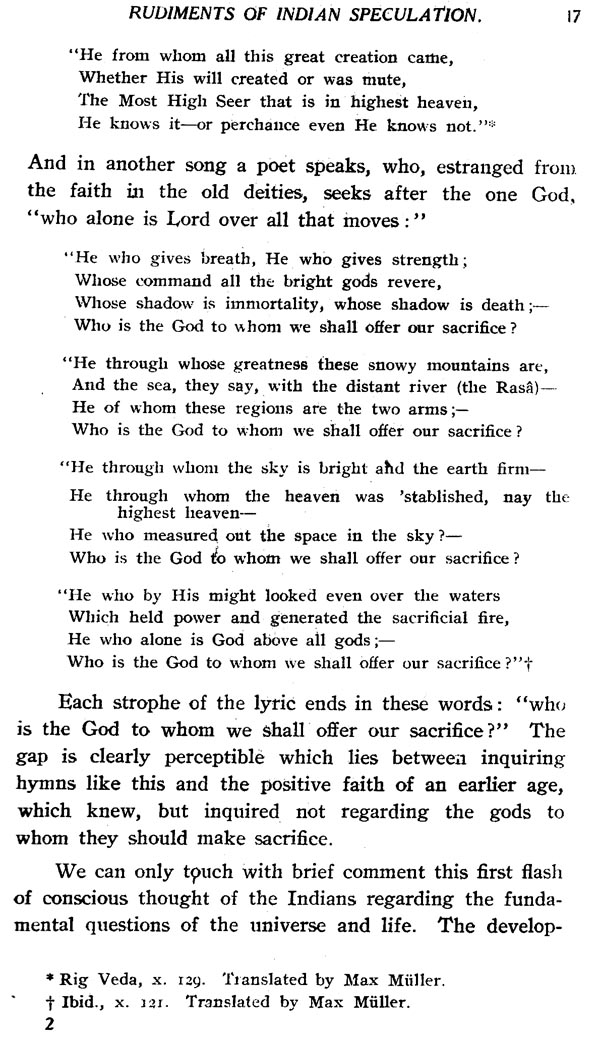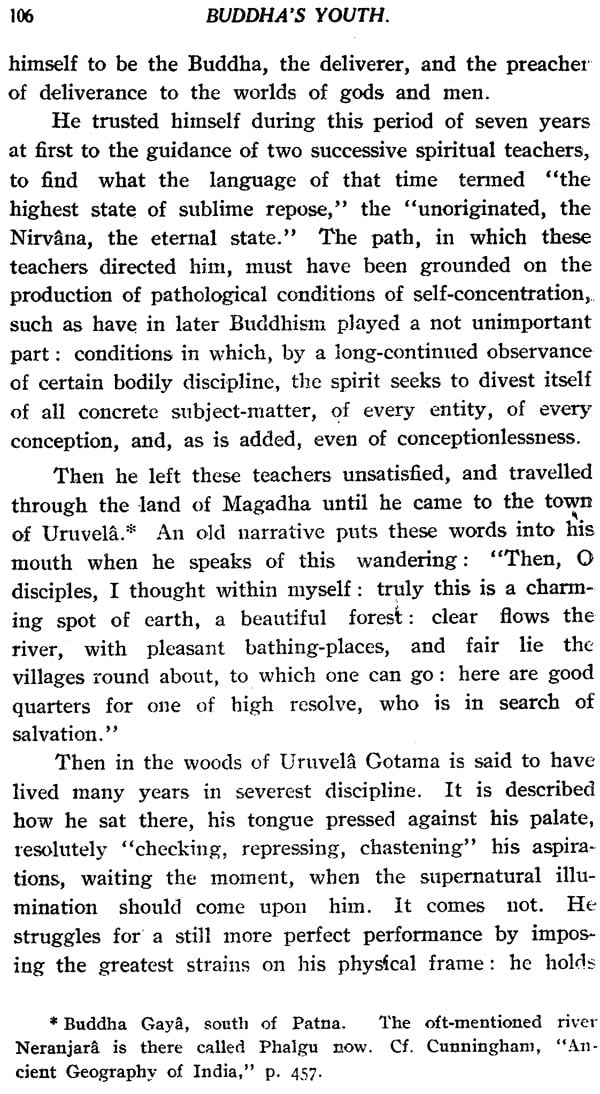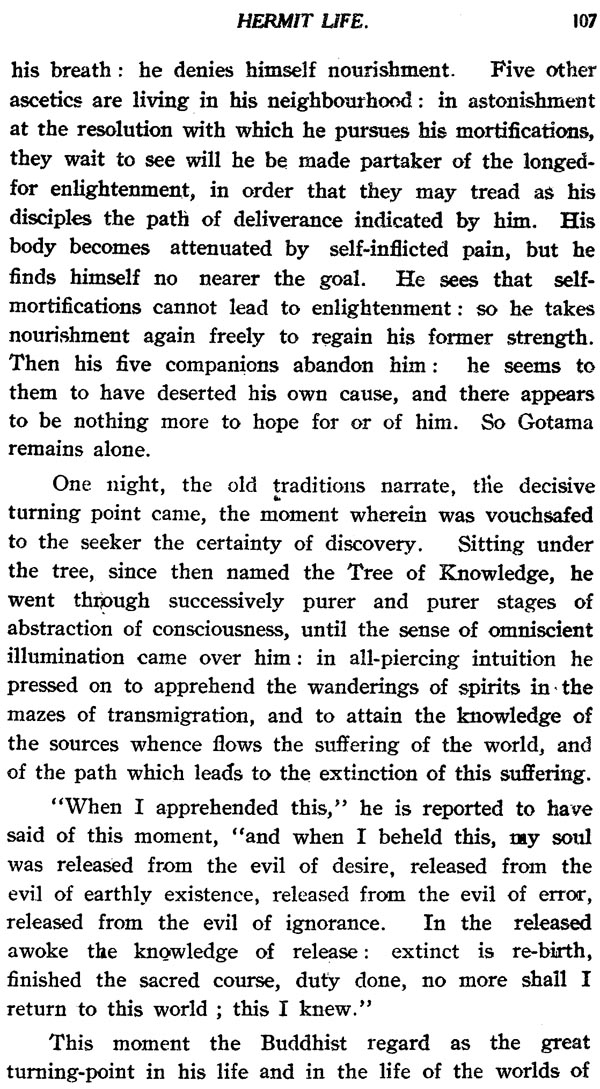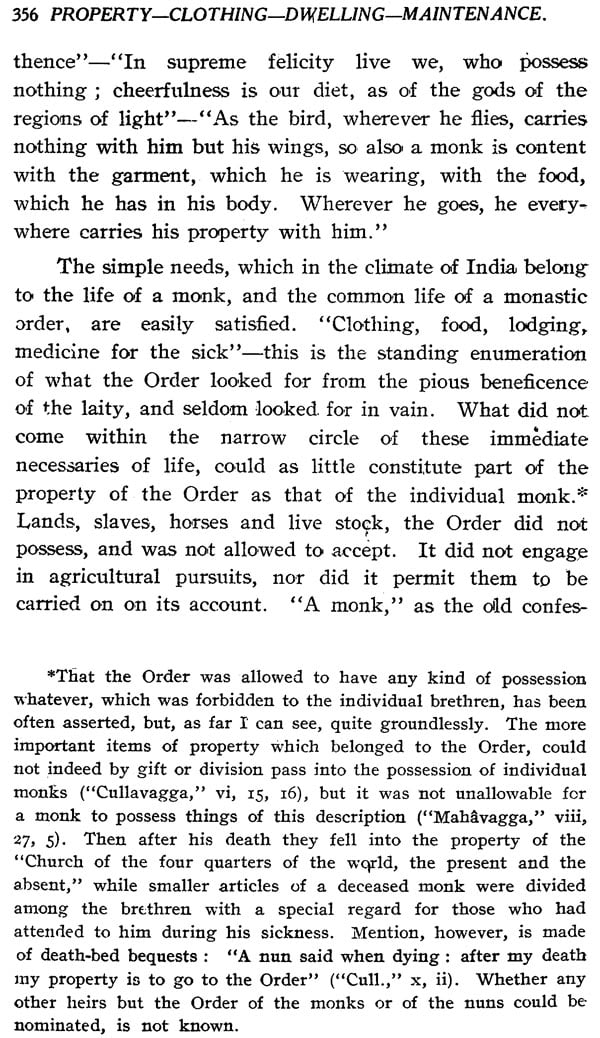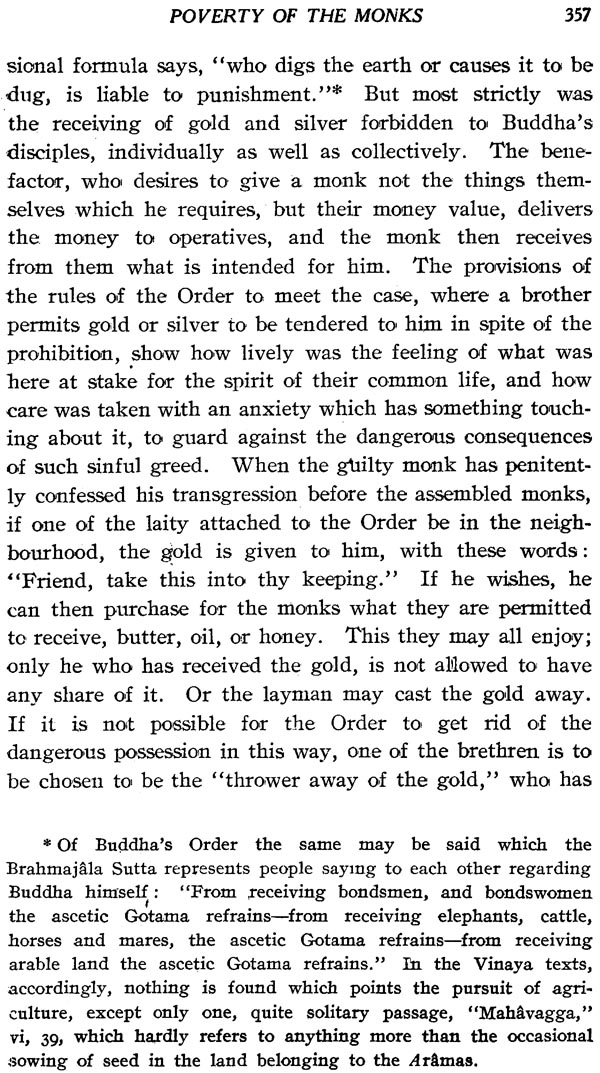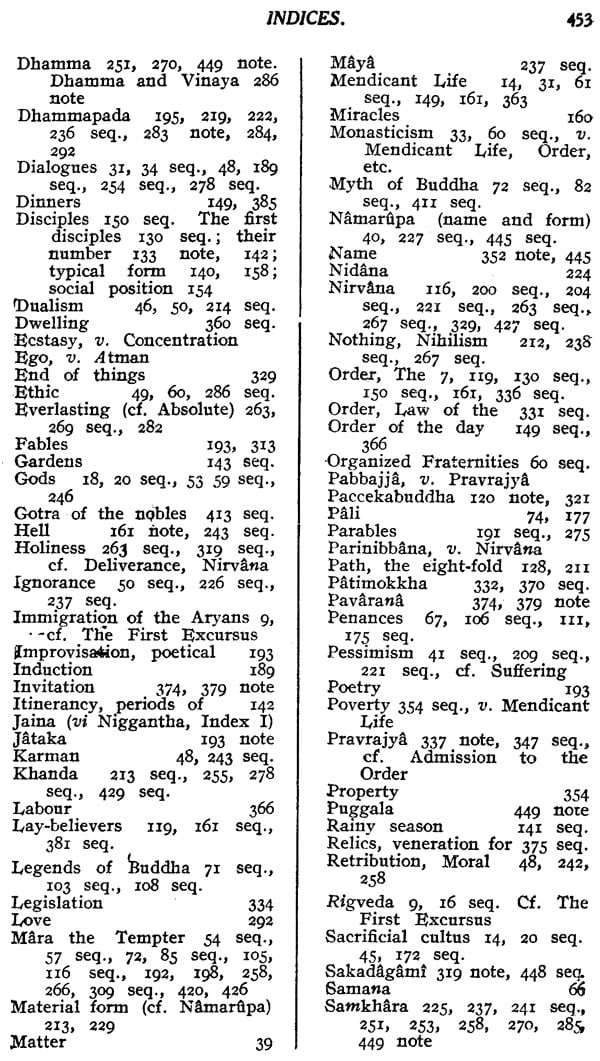
Buddha: His Life, His Doctrine, His Order
Book Specification
| Item Code: | IDC112 |
| Author: | Hermann Oldenberg and William Hoey |
| Publisher: | Motilal Banarsidass Publishers Pvt. Ltd. |
| Language: | English |
| Edition: | 2017 |
| ISBN: | 9788120814974 |
| Pages: | 462 |
| Cover: | Paperback |
| Other Details | 8.5" x 5.5" |
| Weight | 560 gm |
Book Description
Vast gaps separate the historical circle, in the middle of which stands the form of Buddha, from the world on which we are won’t next to fix our thoughts, when we speak of the history of the world.
Those upheavals of nature which partitioned off India from the cooler lands of the west and north by a gigantic wall of vast mountains, allotted at the same time to the people, who should first tread this highly favored land, a role of detached isolation. The Indian nation, in a manner scarcely paralleled by any other nation in the civilized world, has developed its life out of itself and according to its own laws, far removed alike from the alien and the cognate peoples, who in the west, within the compass of closer mutual relations, have per-formed the parts to which history called them. India took no share in this work. For those circles of the Indian race, among whom Buddha preached his doctrine, the idea of non-Indian lands had hardly a more concrete signification than the conception of those other worlds, which, scattered through infinite space, combine with other suns, other moons and other hells, to form other universes.
The day was yet to come, when an overpowering hand broke down the partition between India and the west--the hand of Alexander. But this contact of India and Greece belongs to a much later period than that which formed Buddhism: between the death of Buddha and Alexander's Indian expedition there elapsed perhaps about one hundred and sixty years. Who can conceive what might have been, if, at an earlier epoch, when the notional life of the Indians might have opened itself more freshly and genially to the influences of a foreign life, such events had overtaken it as this incursion of Macedonian weapons and Hellenic culture? For India Alexander came too late. When he appeared, the Indian people had long since come, in the depth of their loneliness, to stand alone among nations, ruled by forms of life and habits of thought, which differed wholly from the standards of the non-Indian world. Without a past living in their memory, without a present, which they might utilize in love and hate, without a future, for which men might hope and work, they dreamed morbid and proud dreams of that which is beyond all time, and of the peculiar government which is within these ever-lasting realms. On scarcely any of the creations of the exuberant culture of India, do we find the stamp of this Indian characteristic so sharply, and therefore, too, so enigmatically impressed, as on Buddhism.
But the more completely do all external bonds between these distant regions and the world with which we are acquainted, as far as they consist of the inter-course of nations and the interchange of their intellectual wealth, seem to us to be served, so much the more clearly do we perceive another tie, which holds closely together internally what are outwardly far apart and apparently foreign : the bona of historical analogy between phenomena, which are called into being in different places by the working of the same law.
